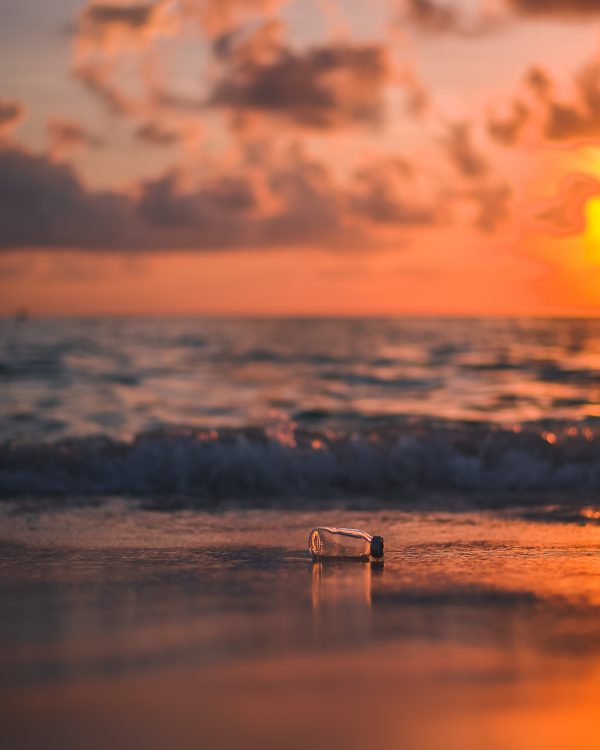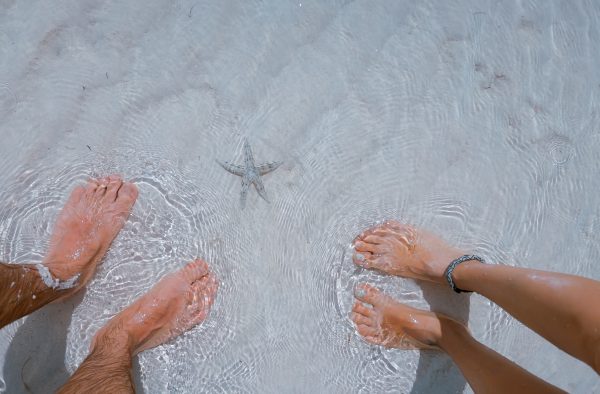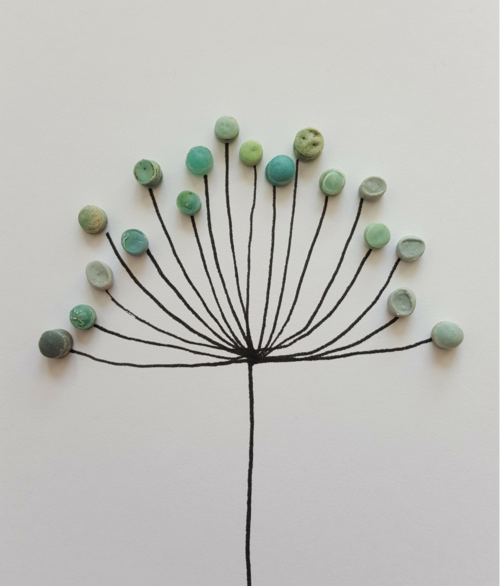
Does it ever happen to you to find a plastic piece buried in the sand? We would say it’s very likely.. It may come from badly behaved beachgoers, brought in by a nearby river or stranded after a long trip, which has started far far away.
During the long time that takes for a plastic piece to break down into fragments, many forms of life can be harmed, from big to small (along with the downsizing of the fragments). The longer a plastic item stays in the environment, the worse. We can read in the news about the threats related to floating plastics or plastics buried in the sand, and about the estimated decaying times of different types of items. Knowing what happens when a piece of plastic is left loose, will help to think more seriously about that.
One thing is sure: whatever plastic piece you find, it comes from people. There were no plastics in nature until we started dumping it. We created the problem, so it’s up to us to look for solutions. Don’t we teach our kids to clean up after making a mess? It is pretty much the same idea then, on a bigger scale! Plastics may strand ashore at any stage. So, when you find plastics on the beach is the perfect occasion to take it away from the ecosystem! Never for a minute think that another person’s litter is not your problem. Our connection to Earth and nature is not a personal issue: our planet’s gain is everyone’s gain.
Now we know and we have no excuse for not taking action!
Here are 3 ideas for you to creatively alarm your children and educate them on the travel of plastics through time
You can use the items collected at the beach for crafting like this one; You may download the sea animals sketches designed by Biologist Lucia Fanini and find crafting inspiration to finish the
You may familiarize yourselves with the sea animals and the dangers they are facing. For example, check the games and the educational resources for sea turtle (Caretta Caretta) provided at Medasset website or find out about the beach trash homes of the Blueberry hermit crabs in Okinawa, Japan.
Watch together with your family a movie with environmental messages, such as ‘The Lorax’ or a documentary on sea creatures (the Blue Planet II collection by BBC is a good choice). Read a short story to pre-school kids
Can you suggest another way to educate children about plastic pollution? We would love to learn more ideas.
This article was written by:
Lucia Fanini, Biologist
Olympia Papadopoulou, Environmentalist
Ioanna Serafeimidou, Family Friendly Culture Advocate & Βlogger
The micro-initiative «Networking against plastic pollution» starts from the intention to tightly integrate actions against plastic pollution into everyday life. The blogs ‘Thepaperboat’ (dedicated to traveling with children in Greece) and ‘Pigolampides’ (about family lifestyle in Thessaloniki) under the coordination of Tero and in collaboration with the marine biologist Lucia Fanini (associate of the Hellenic Centre for Marine Research) initiate actions that will last until November 2019. The aim is to enhance the awareness of families & local organisations (i.e. non-experts) on the issue of plastic pollution and trigger their engagement in project activities. The micro-initiative is funded by the «Beyond Plastic Med initiative (BeMed)» jointly sponsored by the Prince Albert II of Monaco Foundation, the Tara Expeditions Foundation, Surfrider Foundation Europe and the Mava Foundation.
** This document was produced with the financial assistance of Beyond Plastic Med. The contents of this document are the sole responsibility of Tero Single Member PC and can under no circumstances be regarded as reflecting the position of the Prince Albert II of Monaco Foundation, Beyond Plastic Med or its founders.



